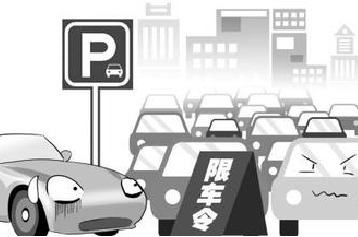Tianjin, Han Restriction Order Re-stabs Motor Industry Nerves
Nonwoven Equipment,Non Woven Bags Machine,Nonwoven Machinery,Non Woven Fabric Sealing Machine Changshu Tianli Nonwoven Equipment Co., Ltd. , https://www.tianli-machinery.com The "restriction order" once again made the auto industry nervous. On August 6, when two major domestic cities, Tianjin and Wuhan, issued a transportation plan, they also mentioned in a timely manner that they would take measures such as restriction of purchases and restrictions on travel to control the growth of motor vehicles.
The "restriction order" once again made the auto industry nervous. On August 6, when two major domestic cities, Tianjin and Wuhan, issued a transportation plan, they also mentioned in a timely manner that they would take measures such as restriction of purchases and restrictions on travel to control the growth of motor vehicles.
Following the implementation of automobile purchase restrictions in Beijing, Shanghai, Guiyang, and Guangzhou, there are indications that domestic first-tier cities have joined the restricted purchase order. According to analysis by industry experts, the issuance of “restricted purchase orders†in these cities may further hurt the self-owned brands, and luxury cars are expected to benefit from them.
8 domestic cities have intention limit
Tianjin purchase has long been a storm. On August 6, the Tianjin Municipal Committee and Municipal Government issued the outline of the beautiful Tianjin construction program, which stipulates that in response to the increasingly serious traffic congestion trend, timely consideration should be given to restrictions on purchases, restrictions, and other measures to control the excessive growth of motor vehicles.
Coincidentally. On the same day, when Wuhan proposed the implementation of the "Road Traffic Safety of the People's Republic of China" draft, it was proposed that the government could implement control measures such as keeping the amount and type of vehicles and restricting the frequency of use of vehicles according to the development of road traffic.
Tianjin and Wuhan have intentions to limit their licences in order to ease urban congestion. The data shows that the current car ownership in Tianjin has exceeded 2 million vehicles, causing serious traffic congestion. The number of motor vehicles in Wuhan has reached 1.45 million, an annual increase of 23.3%, and the road network load is about 0.75, reaching a critical threshold for serious congestion.
This time, Tianjin and Wuhan expressly intends to limit the number of cards, confirming the previous judgment of the China Association of Automobile Manufacturers: on July 10 this year, China Automobile Association revealed that Tianjin, Shenzhen, Hangzhou, Chengdu, Shijiazhuang, Chongqing, Qingdao, Wuhan, these 8 cities Car purchase restrictions may be implemented. All kinds of signs show that with the rapid growth of motor vehicle ownership, the restriction of domestic first-tier cities has become a trend, and the remaining doubt is only a matter of time.
Self-owned brand luxury brand laugh
Although from the total point of view, even if all of the above eight major cities limit the impact on China's total car sales, but only 2%, but the limited license may bring more severe test for the independent brand.
According to the experiences of Beijing, Shanghai, Guangzhou, and Guiyang, after the implementation of the restriction, consumers tend to purchase products with higher displacement and higher prices, while the relatively low-priced independent brands are excluded.
According to data from the China Association of Automobile Manufacturers, in Beijing, the average automobile price has increased by 88% since 2011, and the market share of displacement vehicles with a capacity of 1.6 liters or more has increased by 17% over the same period.
In Shanghai, 9,000 to 10,000 license plates are auctioned each month, and the average auction price so far this year has reached 82,000 yuan. The price of a license plate is still so high. Naturally, few people choose the auto brand car whose price is similar to the license plate.
In Guangzhou, the purchase restriction in 2012 almost devastated self-owned brand dealers. “Last year, Guangzhou suddenly restricted purchases, and we could not even come to abolish the loss of secondary outlets,†said a Geely dealership. In order to make up for the “lost†sales in the first- and second-tier cities, independent brands will have to penetrate into third-tier cities.
On the contrary, luxury brands are not worried about the possibility of restriction. Brands such as Audi and BMW revealed that their sales did not decline after Beijing and Guangzhou limited licenses. "Because these restrictions will encourage car buyers to buy higher-priced cars," Audi spokesman said. The data shows that in the first half of 2013, the sales volume of China's auto market increased by 12.34%, but the market share of self-owned brands continued to decline, falling by 0.23 percentage points over the same period of last year.